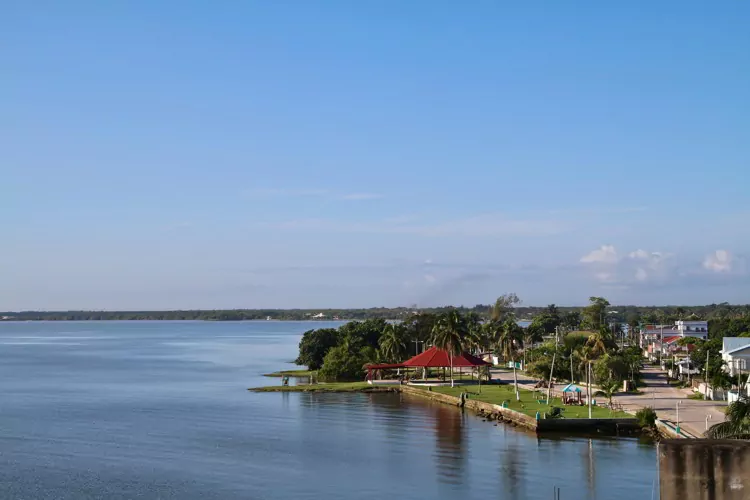
Using A 1031 Like-Kind Exchange When Investing In Property Overseas
How And When To Defer Capital Gains Tax Using A 1031 Like-Kind Exchange
At recent conferences, several attendees have asked about using a 1031 like-kind exchange to move capital overseas. Specifically, they wanted to sell investment property in the United States and use the proceeds to invest offshore.
A 1031 like-kind exchange is an IRS mechanism that allows investors to exchange productive property and defer capital gains taxes. It can be used only with business or investment real estate exchanges. A strict set of rules must be followed to benefit from a 1031 exchange.
Here’s the most important thing to understand about the 1031 like-kind exchange rule when it comes to foreign investments:
The IRS doesn’t allow you to use it for an exchange between U.S. investment property and non-U.S. investment property. You can only exchange U.S. for U.S. or foreign for foreign property to benefit from the tax deferral.
As a quick aside, you don’t directly exchange one property for another. You don’t have to find someone who has a piece of property you want, who also wants your property so that you can swap. You simply follow the IRS rules when selling and use the proceeds from a sale to purchase a replacement property.
The obvious advantage of doing an exchange is that you can reinvest the capital from the sale of one property into a new one, allowing you to compound your returns without taking an immediate tax hit. Suppose you continue to exchange investment properties up to the point of your passing. In that case, your heirs get a stepped-up basis from your estate, and the capital gains taxes disappear altogether (although estate taxes may take over at that point, if the estate is big enough).
It sure would be nice if an investor looking to diversify into offshore real estate could take advantage of the 1031 like-kind exchange, but you can’t. You have to make your first investment outside the United States with taxed cash. If you want to use capital from the sale of a U.S. property, you have to sell it outright and pay any associated capital gains tax. Then you can move the after-tax capital offshore.
Having made that first foreign property purchase, you then can use proceeds from the sale of that property for your next foreign property purchase, deferring the U.S. capital gains.
The question you have to ask at this point, however, is…
Should You Do A 1031 Like-Kind Exchange With Your Foreign Property?
If you’re selling property in Belize, which imposes no capital gains tax, to buy another property in Belize or any other country (for 1031 exchanges the IRS only differentiates between domestic and foreign property; you can move among foreign countries as you like, without restriction), then you probably want to consider a 1031 exchange to defer U.S. capital gains taxes.

Belize
However, if you’re selling property in a country where you’re liable for as much or more in capital gains tax locally as you would be in the United States, then you shouldn’t bother doing an exchange. You can take a credit on your U.S. tax return for the foreign taxes paid to offset tax in the United States. Do an exchange, and you lose that possibility and will eventually pay taxes to Uncle Sam on any deferred gain.
What about a case when you’re selling a property in a country that charges capital gains tax but at a lesser rate than you’d pay in the United States? In this case, you probably don’t want to do a 1031 like-kind exchange either. You can take whatever capital gains tax you pay locally as a credit toward the U.S. tax.
The bottom line is you’re not going to be able to move U.S. real estate investment capital offshore without paying capital gains taxes first. When you do start investing in offshore real estate, the benefits of a 1031 like-kind exchange only really help when selling property in a country that doesn’t impose capital gains taxes on real estate, of which there is only a handful. Belize is one. Belgium is another. Several other countries have waivers or reductions in capital gains on real estate held for extended periods, including France and Italy.
Lief Simon
Mailbag
“Lief, I purchased your wife’s Overseas Retirement Index a couple of years ago. My wife and I are now several months away from moving to the Philippines. We are moving from a Washington State residence, but we will have a new mailing address in Florida after we move.”
“Here’s my question: Does this matter? Both states have no income tax, so no issues there. The questions I have relate to voting rights, whether we can renew a driver’s license in Washington State a few years down the road, and anything else that could be an issue. Not even sure if any of this is important or not.
“Thanks for whatever answers you can provide!”
J.H.
You will need to keep an address in Washington to renew your driver’s license. Or you could transfer your driver’s license to Florida and keep things simple and consistent. I recommend that you keep a U.S. driver’s license, as it makes it easier to rent cars, etc.
Voting is based on your address, so you’d be voting as a Florida resident unless you decide to keep or get a Washington address to maintain your driver’s license in that state.



